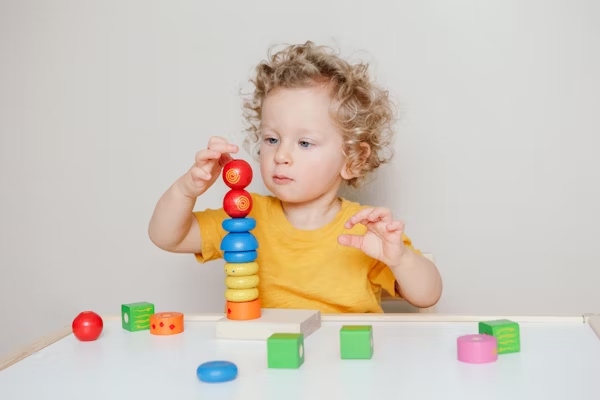The landscape of parenting has been transformed by digital innovation, neuroscience, and human-centered design. In this new era, early childhood development is no longer guided solely by tradition and instinct but increasingly by data-driven insights, intelligent tools, and adaptive parenting strategies. At the heart of this transformation lies the concept of Baby Three V3—a symbolic framework for the third evolution of parenting and early childhood intelligence in the age of smart technology.
This article explores what Baby Three V3 means, how it reflects the new paradigm of child-rearing, and why it matters for the future of family life and education.
What is Baby Three V3?
The term Baby Three V3 represents the third version (V3) of the parenting model, where parents move beyond simple nurturing (V1) and structured education (V2) into a holistic, smart, and adaptive ecosystem (V3).
-
V1: Traditional Parenting — Focused on love, nurture, and survival.
-
V2: Structured Parenting — Emphasized schooling, discipline, and measurable milestones.
-
V3: Smart Parenting (Baby Three V3) — Merges emotional intelligence, neuroscience, and digital tools to foster both cognitive and emotional growth.
This evolution recognizes that babies and toddlers today are digital natives from birth, and that parental guidance must adapt to prepare them for a world defined by constant change.
Early Childhood Intelligence in the Digital Era
1. Cognitive Development Through Play
Baby Three V3 emphasizes that play is more than entertainment—it is the foundation of intelligence. Smart toys, interactive apps, and AI-driven learning platforms now help children build early skills in problem-solving, memory, and emotional regulation.
2. Parental Insight via Data
Smart parenting tools, such as baby monitors with AI, sleep trackers, and health apps, provide real-time feedback. Parents are empowered with insights into their child’s sleep patterns, developmental progress, and even emotional states, enabling proactive rather than reactive care.
3. Emotional Intelligence (EQ)
Unlike previous parenting models that focused primarily on IQ, Baby Three V3 emphasizes emotional literacy—teaching children empathy, resilience, and adaptability from the earliest years.
The Role of Technology in Baby Three V3
Technology is central to this parenting shift. Some examples include:
-
AI-Powered Baby Monitors that detect not just movement and breathing but also mood and crying patterns.
-
Interactive Learning Platforms that adapt educational content to a child’s pace.
-
Wearables for Kids that track health indicators while encouraging physical activity.
-
Parenting Apps that help caregivers coordinate schedules, nutrition, and developmental milestones.
These tools reflect the Baby Three V3 approach: a seamless blend of human love and digital intelligence.
Benefits of Baby Three V3
1. Personalized Development
Children are no longer compared against a generic benchmark. With Baby Three V3, data-driven insights ensure that learning, nutrition, and play are tailored to individual needs.
2. Empowered Parenting
Parents gain confidence when supported by smart tools that provide guidance, reminders, and alerts. This reduces anxiety while enhancing the parent-child bond.
3. Future-Ready Kids
By integrating technology responsibly, Baby Three V3 prepares children for a future where digital fluency, adaptability, and emotional intelligence are core life skills.
Challenges and Ethical Considerations
While Baby Three V3 offers transformative opportunities, it also raises critical questions:
-
Screen Time Balance: How much digital exposure is too much in early childhood?
-
Data Privacy: Are children’s biometric and behavioral data secure in smart parenting ecosystems?
-
Overreliance on Tech: Can technology unintentionally undermine the intuition and emotional connection that form the essence of parenting?
Addressing these challenges requires a balanced approach, ensuring that technology augments rather than replaces human care.
Baby Three V3 and the Future of Parenting
Looking ahead, Baby Three V3 signals a world where AI co-parents with humans—not to take over parenting, but to enhance its possibilities. Some future trends may include:
-
Neuro-responsive Toys that adjust learning activities based on brainwave monitoring.
-
Predictive Analytics for anticipating developmental challenges before they surface.
-
Global Parenting Communities powered by shared data insights and cultural exchanges.
-
Sustainability Integration where eco-conscious parenting aligns with digital health tools.
This vision places Baby Three V3 at the center of modern resilience and adaptive intelligence—not just for children but for parents navigating an uncertain world.
Conclusion
Baby Three V3 embodies the next stage of parenting, where emotional care, scientific insights, and smart technologies converge to nurture both cognitive and emotional intelligence from the earliest years. It is less about raising “digital babies” and more about raising balanced, future-ready individuals in a world shaped by constant evolution.







